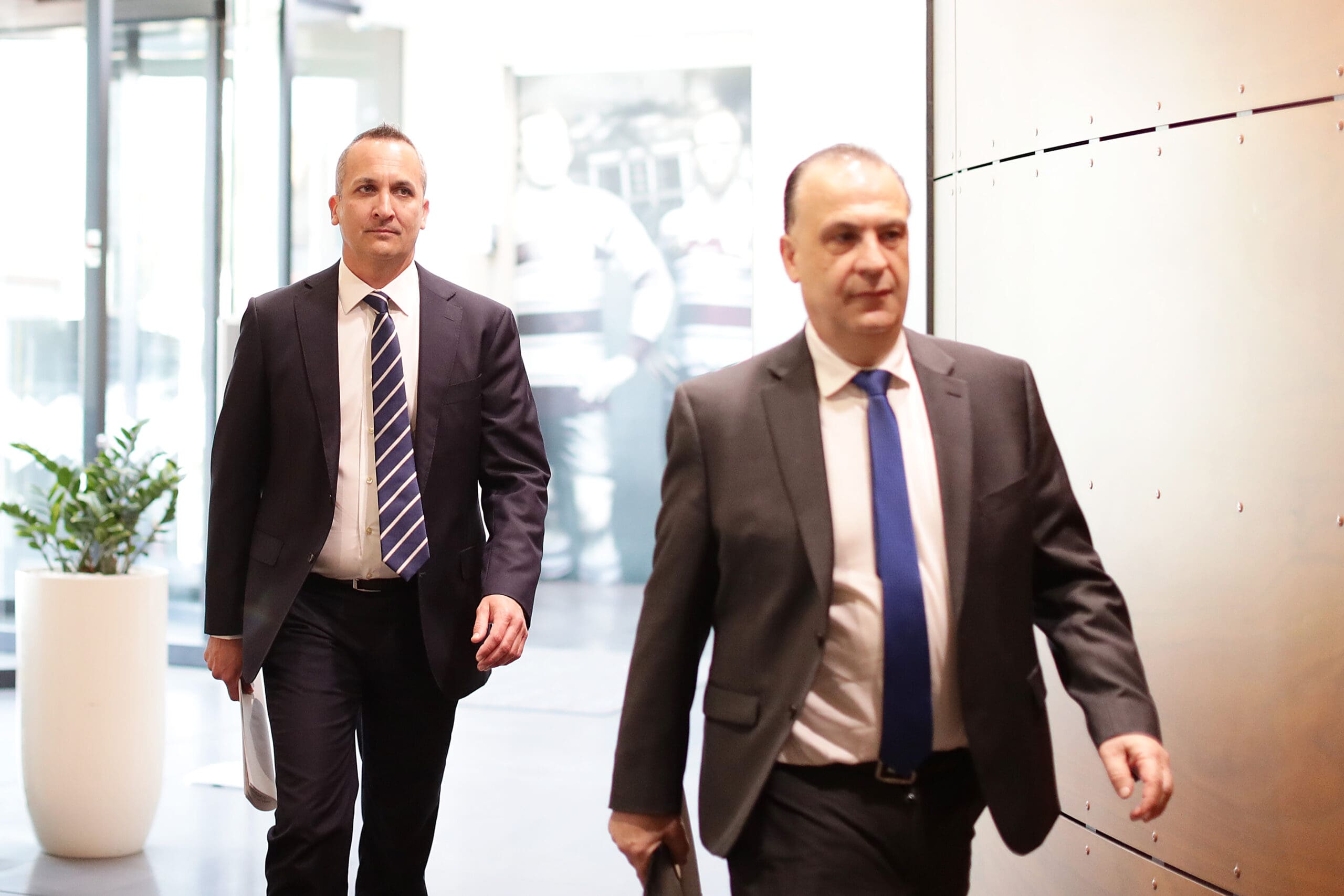The narrative that rugby league was doomed in
Australia could only be the product of poor administration, not the inherent strength of the game itself.
This was confirmed when the
NRL looked at its balance sheet during COVID and noted the game barely owned an asset in the form of bricks and mortar. (The
NRL has also since disposed of one of its most valuable assets, its digital media arm, at the behest of its principal broadcasters.)
The “sky falling in” narrative – well supported by News Corp and Nine – was that V’landys was largely responsible for the survival of the game. The purported grave risk to the game’s very survival presented to the public in this period is frankly not borne out by any proper consideration of the game’s overall history. (In contrast, the potential existential threat to the game, and all collision sports, of concussion and CTE has been acted on painfully slowly by the
NRL.)
Unfortunately for V’landys (and
NRL CEO Andrew Abdo), the absolute key indicator of success and independence in these roles is the negotiation of media rights (as this funds all levels of the game from grassroots to the
NRL and State of Origin).
In this regard, they have been completely trumped by the AFL’s CEO Gillon McLachlan. As such, the
NRL negotiators must be held directly responsible for underfunding the game in comparison to the AFL for any period in which the AFL rights exceed those of the
NRL.
The near complete absence of debate in rugby league media about this issue is extremely concerning. Initial reporting of the issue was almost completely restricted to Roy Masters and
Andrew Webster, both of the
Sydney Morning Herald. Effectively, the
NRL media partners – News Corp and Nine – have completely shut down discussion of this matter and potential criticism of V’landys and Abdo.
To make this even worse, it has been widely reported that Nine bid $500 million per year for the AFL rights, a figure in excess of that paid to rugby league for broadcast rights on Nine between 2023 – 2027. It begs the question – was Nine prepared to sacrifice its current sports partner, rugby league, to acquire the AFL in its stead?
How else could such an offer be viewed given the obvious broadcasting conflicts which would immediately emerge from Nine holding the rights to both AFL and
NRL simultaneously? (Foxtel of course were successful with Seven in obtaining the AFL rights up to and including 2031 – again paying overs compared to the
NRL rights and thereby showing Foxtel’s continuing bias towards AFL which has existed at that organisation since its inception and the days of Rupert Murdoch speaking publicly in favour of the AFL over rugby league.)
Webster’s SMH article (the paper is owned by Nine) actually appeared to admit that criticism of V’landys and Abdo had been forced upon the SMH by concern from people in the wider rugby league community.
The suggestion that the article was “only written” for this reason again causes concern about the true independence of journalists paid by Foxtel and Nine and their ability to directly criticise the
NRL.
Certainly, the AFL deal (and its impacts on rugby league) appear to have been ignored on Foxtel’s nightly
NRL360 panel show at the time the deal was released to the media. Discussion around individual finals matches was allowed to continue unabated on
NRL360, while the elephant of TV rights sat sunning itself untouched in a corner of the studio, the big picture totally ignored.
Nine’s recent media rights decisions have now directly funded the
NRL’s opposition sports in both the AFL and rugby union. Nine paid $100 million to rugby union for three years broadcasting rights while seeking reductions from the
NRL for reduced content during the pandemic. Effectively, Nine took the money due to rugby league and handed it to rugby union (a sport that has sought to kill off the independent sport of rugby league for over 120 years). Some loyalty by Nine!
At the same time, Nine has ignored international rugby league (no bid for games during the upcoming
Rugby League World Cups in
England starting next month) and advertised rugby union widely during important rugby league telecasts such as the State of Origin series. For the
NRL to seemingly countenance this behaviour from Nine without public reproach is quite remarkable.
Indeed, V’landys main focus in the Webster SMH article appeared, extraordinarily, to be his claim that the
NRL saved Foxtel as a going concern, and this aided the AFL in their record negotiations. That this apparent concern for the sport’s long-term broadcaster’s health was allowed to seemingly overtake concern for the sport itself and its crucial future funding arrangements beggars belief. Perhaps it was a misstatement on V’landys part? If so, it has yet to be corrected in the public domain to my knowledge.
Since then, claims of seeking compensation from Foxtel for breach of a non-existent “no more favourable clause (than the AFL)” in the NRLs written agreement have been pushed out via various media bodies.
One wonders at the reliability of internal
NRL legal advice if they truly believe verbal representations will carry any weight in the consideration of a written contract which will most likely exclude anything oral from its very terms.
The extent to which the clubs place pressure on the
NRL over this egregious state of affairs will be seen after the finals conclude.
Whichever way the current
NRL tries to spin it, the gap in funding with the AFL has proved fatal for
NRL Chairmen and CEOs of the past (see David Gallop).
Whether it proves so for V’landys and Abdo is yet to be seen.
The AFL signed a record-breaking deal, but what does it mean for the NRL?

www.zerotackle.com







